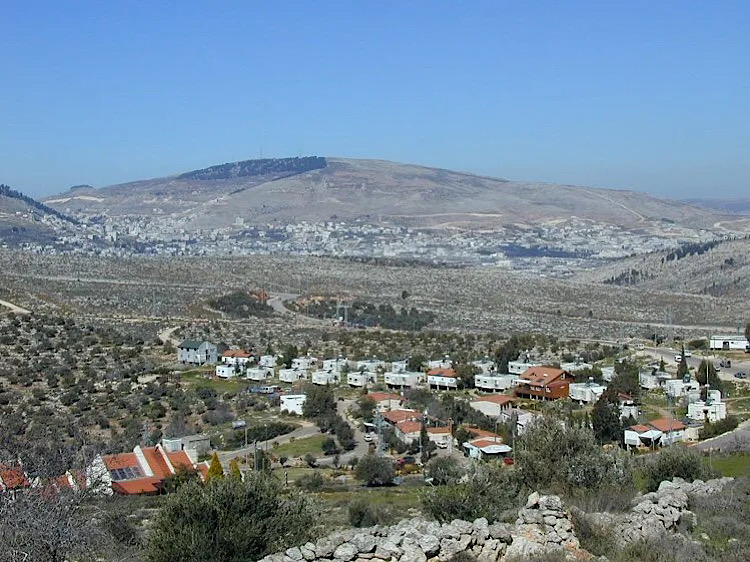Smotrich 'legalises' five outposts, imposes punitive measures on the Palestinian Authority
Neither the cabinet, nor Prime Minister Netanyahu have confirmed the finance minister’s announcement. In exchange, Israel would release Palestinian taxes frozen after the Hamas attack on 7 October. The pro-settler and pro-occupation movements rejoice. Peace Now slams the decision as a prize for criminals in the middle of war.
Jerusalem (AsiaNews) – Israel’s ultra-right-wing Finance Minister, Bezalel Smotrich, a staunch supporter of the government’s expansionist policy in the West Bank, appears to have successfully moved the cabinet to legalise five West Bank outposts and impose a series of sanctions against the Palestinian Authority (PA).
No official statement has come yet from either the Cabinet Office or the Prime Minister’s in what is bound to further fuel tensions in the country while the war in Gaza continues.
In exchange, Haaretz reports, Smotrich will sign off on the release of taxes withheld from the Palestinian Authority and extend a waiver that will allow Israeli banks to work with Palestinian counterparts. These moves were absent from the minister’s statement.
In his statement Smotrich said the decision on the outposts is the consequence of the Palestinian Authority going before the International Criminal Court, the International Court of Justice, the United Nations, and the arrest warrants issued against Israeli leaders and the push for the unilateral recognition of a Palestinian state.
The outposts are Evyatar in the northern West Bank, Sde Efraim and Givat Asaf in the central West Bank, and Heletz and Adorayim in the south. Under existing Israeli legislation, they are illegal. Nevertheless, the cabinet is said to have okayed the publication of tenders for thousands more homes in settlements.
Smotrich wants to take action against the PA, including scraping various benefits for PA officials, cancellation of exit visas for PA officials and restrictions on their movement, “enforcement action against incitement” by PA officials, and the transfer of enforcement responsibilities from the PA to Israel in a nature preserve in the Judean desert that right-wing groups – including one founded by the minister – claim has seen unbridled Palestinian building activity, damaging heritage sites and the environment.
It remains to be seen how the United States will react, as Washington does not want to legitimise many of Smotrich’s decisions towards the Palestinians; for now, the US has imposed an effective boycott of Smotrich, refusing to meet with him or fellow far-right cabinet minister Itamar Ben Gvir.
Washington fears that a PA collapse could lead to chaos in the West Bank, which would be exploited by Hamas and Islamic Jihad to open a new war front.
The decision to legalise outposts in the West Bank has met with praise from far-right movements and pro-occupation leaders. Yossi Dagan, head of the Samaria Regional Council, said it was a "Zionist decision and a strong message of victory."
“The new settlement will complete a succession of settlements in the region,” said Yaron Rosenthal, the head of the Gush Etzion Regional Council. For Israel Gantz, head of the Binyamin Regional Council, the decision “strengthens the State of Israel.”
Peace groups, like Peace Now, are not unexpectedly outraged, calling the decision “crazy” that damages Israel's relations with the United States.
“Instead of worrying about the neglected residents of the south and the north, the settler government is giving a prize to criminals at the height of the war to satisfy Smotrich, who is collapsing in the polls,” the group said in a statement, a reference to surveys showing that his Religious Zionism party would fail to enter the Knesset if elections were held.
“This is an illegitimate government that lost the faith of the people a long time ago and is being managed by a messianic, extremist minority that has to get out of our lives,” the group added.
Israeli civilians and soldiers moved into Jewish settlements and outposts built in territories conquered in the Six-Day War (June 1967) in the West Bank, East Jerusalem, the Golan Heights, Gaza, and the Sinai.
In 1982 Israel withdrew from settlements in Sinai after signing the peace agreement with Egypt in 1979, and former Prime Minister Ariel Sharon ordered the dismantling of 17 settlements in Gaza in 2005.
In November 2019, former President Donald Trump broke with past US policy, saying that the settlements were not contrary to international law, negatively impacting relations with the Palestinians.
Incumbent US President Joe Biden wants to return to the pre-Trump era and opposes settlement activity, while maintaining recognition of Jerusalem as Israel's capital.
In fact, little has been done. The Jewish state has continued its expansionist policy, which has accelerated since the 7 October attack and the war in Gaza against Hamas.
27/02/2023 19:15
15/03/2024 18:50
03/02/2023 14:31







.png)










